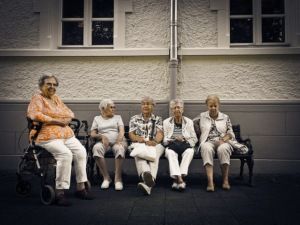News
Agreement reached on changes to Danish pension system
This article is more than 8 years old.
The government wants to encourage people to stay on at work longer and save up more

The government would like to see pensioners deferring their retirement (photo: Pixabay/MichaelGaida)
For some time now there have been concerns that for a large number of Danes, saving up for their retirement was increasingly bad business.
The money that they would be paid out would be clawed back from their state pension and they might even end up out of pocket.
A necessary restructuring
To do something about this, the government and Dansk Folkeparti have reached an agreement on restructuring the pension system to make it more attractive for people to defer their retirement, as well as assisting them in saving up for their golden years.
“Denmark will be stronger and more secure when citizens are better able to take care of themselves. That’s why it has to pay to work and it should also pay to save up for a pension,” said finance minister Kristian Jensen.
In 2023, when the agreement is fully phased in, all Danes will be able to pay up to 50,000 kroner annually into a tax free savings scheme up to five years before their retirement age. Payouts from this scheme will not be clawed back from the state pension.
READ ALSO: The efterløn effect: Rise in EU retirement age not replicated in Denmark
Stay on – and take a cash payment
In order to encourage people to stay at work longer, it will also be possible for people to have their efterløn (an early retirement savings scheme) paid out tax free if they relinquish the right to take early retirement.
“I think it is absurd and unfair that for some, it doesn’t pay to save up for their own pension because of the way the tax and pension systems interact. On top of that, it could mean that some people decide to withdraw from the labour market early,” said economy and internal affairs minister, Simon Emil Ammitzbøll.
“I’m very happy that we are doing something to solve this problem. We’re taking the first step today and the next will be in the autumn, when we are to discuss tax cuts.”
In connection with the scheduled autumn negotiations on phase II of the job reform, the government and Dansk Folkeparti will also discuss the possibility of introducing a compulsory pension savings scheme for those who at present save little or nothing towards their pensions.










































